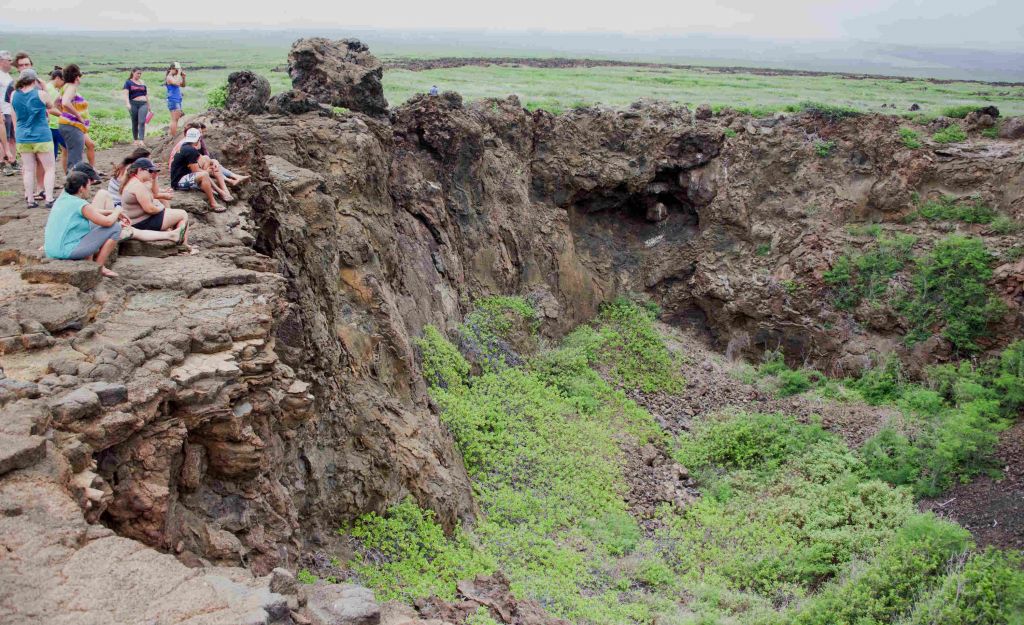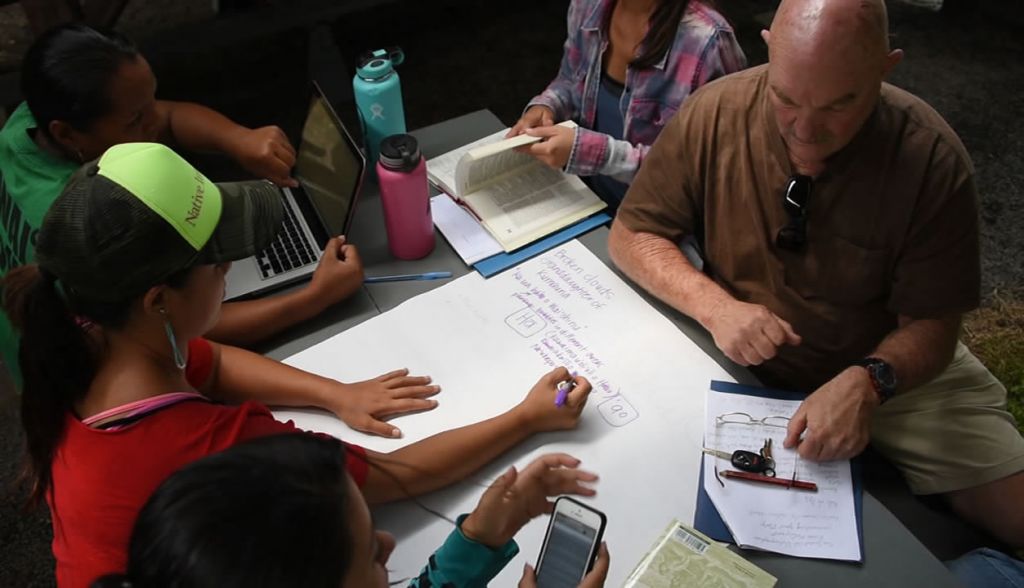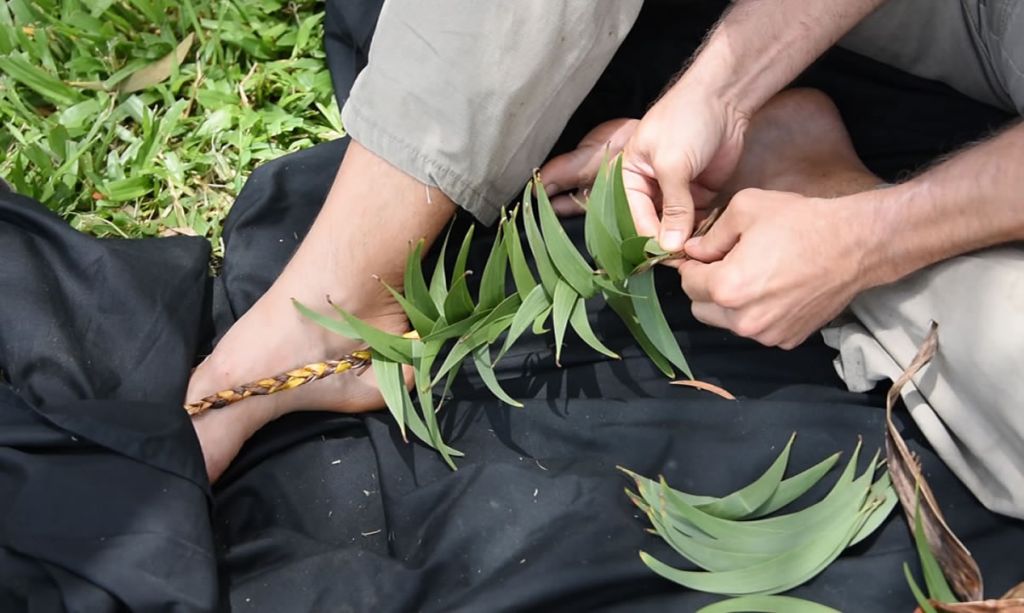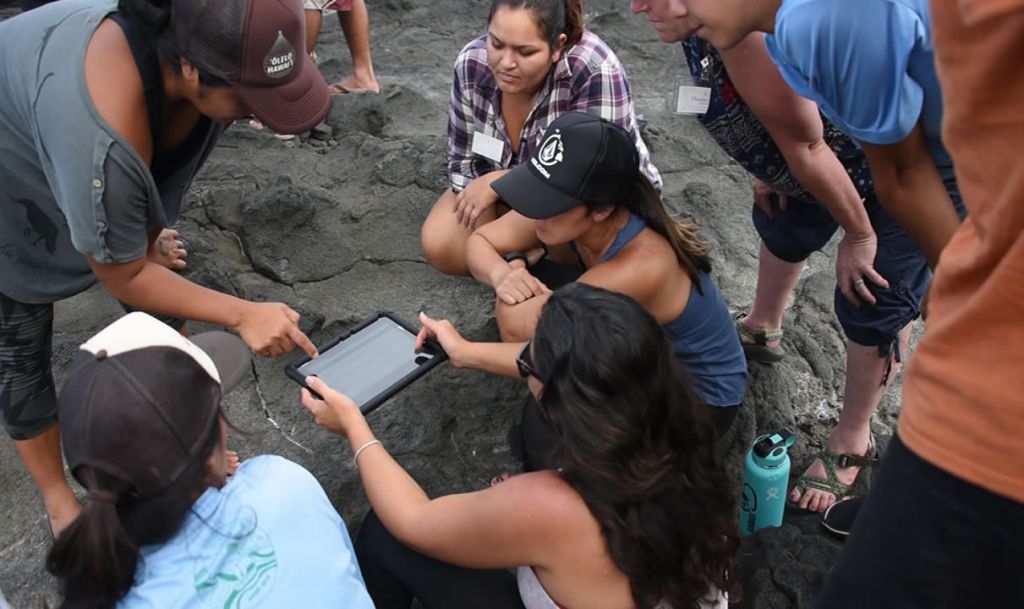MCC Climate Change Immersion Camp: Place-Based Collaboration Across Worldviews
August 9-12, 2016
Kiolakaʻa Ranger Station, Kaʻū
Documentary Film Released in April 2017!
Check out our film produced from the August 2016 PI-CASC Climate Change Boot Camp! View the 10-minute documentary film, Resilient Voices: Adaptation Across Worldviews, below, or download from the USGS website.
Synopsis
Building bridges across distinct worldviews and, thereby, building upon local knowledge networks is not a straightforward process and requires time. Yet diversifying and strengthening networks that are accountable to specific landscapes and seascapes as well as the communities that utilize these resources is a powerful process. Employing knowledge co-production, long-term professional networks can increasingly root the scientific method within the needs, values, and practices of well-defined professional communities and places, profoundly expanding local capacities of adaptation, resilience, and sustainability. In August of 2016, the PI-CASC Climate Change Boot Camp utilized a wide variety of in-person experiences and multiple ways of knowing to expand local professional networks, while improving our understanding of the worldviews of others. We invite you to experience the camp through our short film in the above link.

The Setting
The University of Hawaiʻi at Hilo (UH Hilo) and the PI-CASC co-developed and hosted our first Climate Change Boot Camp at the Kiolakaʻa Ranger Station in the Kaʻū Forest Reserve, August 9-12, 2016. This event showcased collaborative research efforts within UH Hilo’s Tropical Conservation Biology and Environmental Science graduate program that are driven by local natural resource managers across Hawaiʻi Island. Camping at the ranger station over these four days and three nights offered a unique outdoor environment within which transdisciplinary professionals could meet in person, network, and deepen understanding across diverse worldviews through collaborative activities.
The Goal
The goal of the collaborative, manager-based Climate Change Boot Camp is to build upon existing local professional networks by participating in multiple knowledge formats and uniting local managers with cutting edge research support. Building upon placed-based professional networks is a powerful means by which to increase the capacity of our local communities to be adaptive, resilient, and sustainable through socio-ecological change.
“It’s no easy task to bring everyone together of different backgrounds, but it’s those points where we can start to have the uncomfortable but important conversations outside of just climate change science. This camp made me reflect on how to deepen our relationships to place and channel our energy that includes all voices within the group at all levels. It was good for us to see how these collaborations start – where the rubber meets the road. I’m starting to really think through steps moving forward to create the change we all are working towards in our own disciplines and networks.”
– Kanoe Morishige, PhD candidate, University of Hawaiʻi at Mānoa

Spanning Worldviews
Guided by the MCC’s fundamental mission of “getting to know one’s neighbor”, the boot camp created an exploratory forum for 57 cultural practitioners, managers, scientists, graduate students, policy professionals, and community leaders to come together in person to collectively address important issues attendees face within complex times of change. Co-created open forums, such as this boot camp, break new ground by uniting distinct worldviews in growing collaboration and offer a major step forward in building long-term trust and increasingly diverse local professional networks.

Themes
The three core themes of the boot camp were: knowledge co-production, multiple ways of knowing (e.g. experience, cultural norms and values, instinct, intellect, etc.), and place-based management. Knowledge co-production is the process of developing locally useful solutions (actionable science) by uniting managers and scientists through collaborative stakeholder-driven research. The boot camp took place outdoors amid native forest species to stress experiential knowledge and a diverse sense of place ecologically and culturally. At the conclusion of the boot camp, participants indicated strong interest in increasingly developing interdisciplinary discussion forums and professional networks in order to expand local resiliency, adaptation, and sustainability.
“Hearing the history and moʻolelo of the place was one of my favorite parts of the whole camp. It helps you build a connection to place, and build a more comprehensive perspective on culture, modernization, natural resources and where you fit in. Please have more of these [boot camps] in the future.”
– anonymous quote from a graduate student in the post-event survey

Attendance Details
- The Climate Change Boot Camp was an event developed by the UH Hilo as part of its PI-CASC supported efforts to build local adaptive capacity through socio-ecological change. UH Hilo conceived of and organized this effort and worked with its Hawaiʻi Island stakeholders to guides its development.
- The workshop is a collaborative undertaking between UH Hilo’s staff/faculty/graduate students and federal, state, county, private, and NGO organizations largely centered on Hawaiʻi Island. Participants included graduate students from UH Hilo, UH Manoa and University of Guam, representatives from a diverse array of local natural resource management organizations, university and federal researchers, cultural practitioners, policy makers, policy implementers, communications staff, and community leaders.
- Over the 4-day, 3-night camp, the minimum number of participants (fellows) on a given day was 33. The maximum was 48.
- 58 fellows participated in the camp, which included 15 graduate students (10 masters students from UHH, 4 PhD students from UHM, and 1 masters student from University of Guam), 17 natural resource managers focused on Hawaii Island, 10 scientists (1 sociologist, 3 anthropologists, 3 biologists, 1 hydrologist, 1 marine scientist, 1 geographer), 4 participants from the field of policy, 6 administrators, 2 participants from the field of communications and film making, and 4 in other fields.
- Of the 58 total fellows, 36 were women and 22 were men
- 23 fellows participated in the entire camp (4 days and 3 nights).
- All 5 UH Hilo graduate students from our 2016 cohort were key participants in this experience.
“For me, the take home message from this camp was the importance of collaboration of people from different professional and cultural perspectives. It was a good experience to actually engage in building these relationships among this diverse group. It seems like this is an important first step, building trust among this community of people who all want to protect Hawaiʻi in the face of climate change. From this camp I did not learn too much about the impacts of climate change in Hawaiʻi, but rather, I gained a view into the world of collaboration, a world we need to welcome if we are going to find solutions. I think this camp was a great starting point, and I thank you for letting me be a part of it.”
– anonymous quote from a graduate student in the post-event survey

